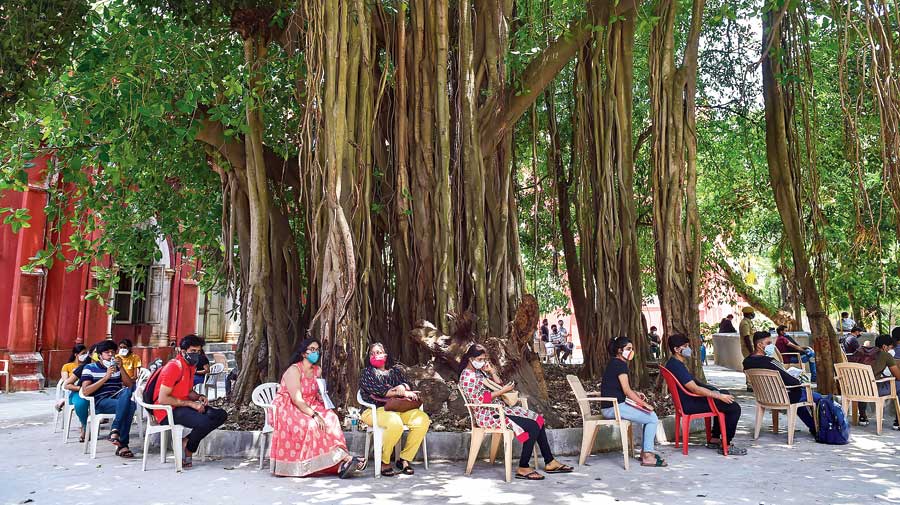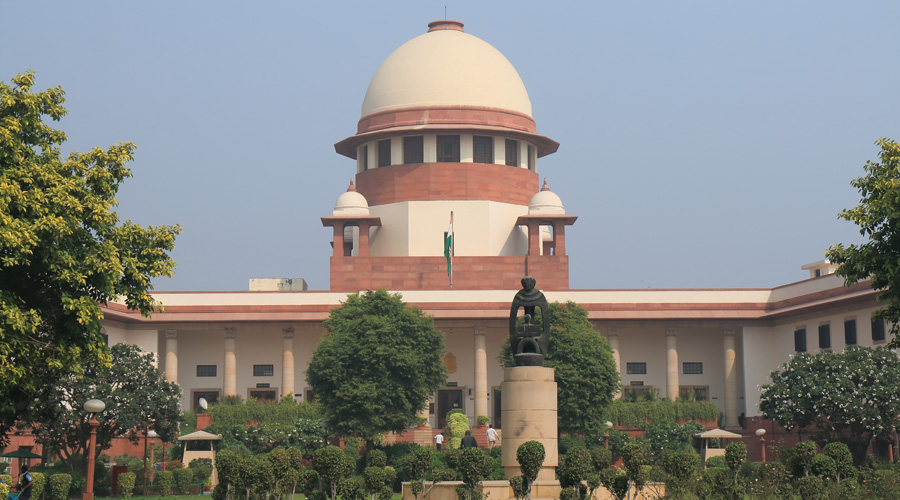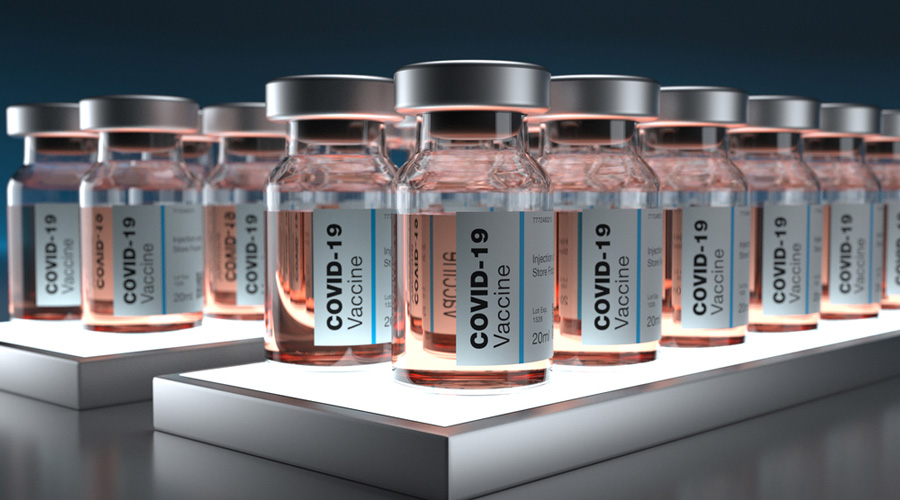The Supreme Court on Wednesday raised “serious doubts” about the Narendra Modi government’s “liberalised” vaccine policy of “fixing higher prices as a competitive measure” and said it’s the responsibility of the Centre and not the states to provide free vaccination.
If the Centre’s bulk buying of Covid vaccines is why it’s charged a lower price than the states and private hospitals, it’s all the more reason the Union government should use its “unique” position as a “monopolistic buyer” to procure all the doses and provide them free to all Indians, the court said.
The bench of Justices D.Y. Chandrachud, L. Nageswara Rao and S. Ravindra Bhat said the Centre’s policy of allowing vaccine manufacturers to charge the states higher rates violated the fundamental right to equality, as did its policy of providing free vaccination only to those aged 45 and above.
The court underlined that this year’s annual budget had set aside Rs 35,000 crore exclusively for vaccine procurement.
“The central government is directed to clarify how these funds have been spent so far and why they cannot be utilised for vaccinating persons aged 18-44 years,” the court said.
If the states are forced to provide free vaccines by spending their own money, it would affect their development schemes and efforts to improve their health infrastructure, the bench said.
The court’s rebuke comes at a time several states, including Bengal, have demanded that the Centre provide free vaccination to all and underlined the country’s policy of free universal immunisation since Independence.
The Centre is buying — at Rs 150 a dose — half the vaccines produced in India and providing these free to the states to inoculate those aged 45 or above free of cost at government facilities.
The rest is to be bought by the states and private hospitals themselves directly from the vaccine makers. The states are charged Rs 300 per Covishield dose and Rs 400 per Covaxin dose while the private hospitals pay Rs 600 for Covishield and Rs 1,250 for Covaxin.
Some state governments are nevertheless offering free vaccines also to those aged between 18 and 45 at their facilities while everybody has to pay for the jabs at private hospitals.
‘Competition’ doubt
The court questioned the Centre’s argument that having the states and private hospitals buy half the vaccines would “attract more private manufacturers that could eventually drive down prices”, highlighting that the Union government had pre-fixed the prices.
“Prima facie, the only room for negotiation with the two vaccine manufacturers was on price and quantity, both of which have been pre-fixed by the central government,” the bench said.
“This casts serious doubts on UoI’s (Union of India’s) justification for enabling higher prices as a competitive measure. Furthermore, the central government justifying its lower prices on account of its ability to place large purchase orders for vaccines raises the issue as to why this rationale is not being employed for acquiring 100 per cent of the monthly doses.”
Risk query
The court rejected the argument that the Serum Institute of India (SII) and Bharat Biotech (BBIL) — the manufacturers of Covishield and Covaxin, respectively — deserved to charge higher prices to the states because they had borne the risk of manufacturing the vaccines with their own money.
The bench stressed that this year’s budget had earmarked Rs 46 crore as initial payment to the two manufacturers under the private-public partnership model.
“Since the central government has financed (officially, Rs 35 crore to BBIL and Rs 11 crore to SII for phase 3 clinical trials) and facilitated the production (or augmentation of production) of these vaccines through concessions or otherwise, it may not be accurate to state that the private entities have alone borne the risk and cost of manufacture,” the bench said.
“Additionally, the central government would have minimised the risks of the manufacturers by granting emergency use authorisation to the vaccines, which should (be) factor(ed) into its pricing.”
The court questioned the Centre’s policy of “intervening in pre-fixing procurement prices and quantities for states/ UTs and private hospitals, but not imposing statutory price ceilings”.
The bench said the Centre’s policy of ensuring free vaccines at government facilities only for the 45-plus and frontline workers ran counter to the fundamental right to equality guaranteed under Article 14 of the Constitution.
Also, in the context of the Centre “receiving vaccines at a much lower rate from manufacturers, it is important for us to examine the rationality of the existing liberalised vaccination policy against Article 14 of the Constitution, since it could place severe burdens, particularly on states/ UTs (Union Territories) suffering from financial distress”.












